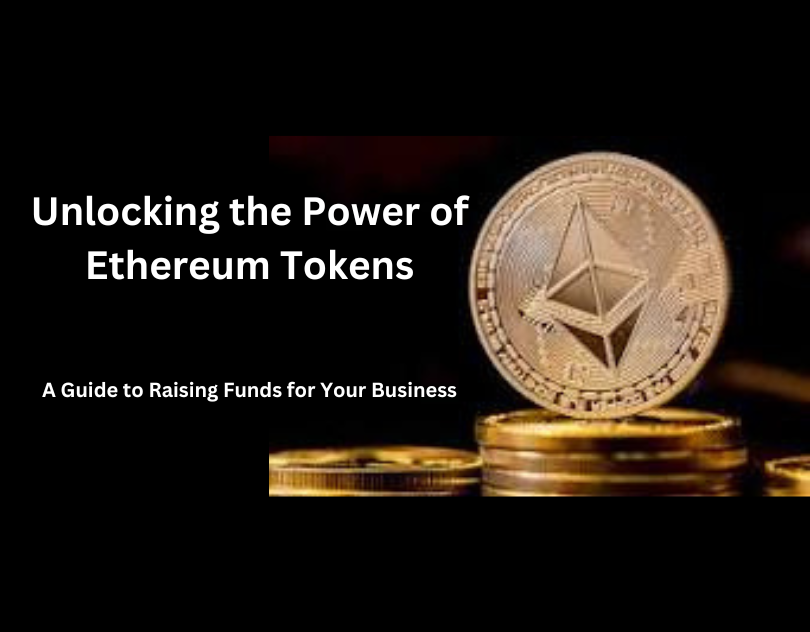As the world becomes more digitized, the power of blockchain technology is becoming increasingly clear. One of the most popular blockchain platforms is Ethereum, which is known for its ability to create decentralized applications and smart contracts. In this comprehensive guide, we will explore Ethereum token development, including the basics of Ethereum, the benefits of Ethereum token development, popular use cases for Ethereum tokens, steps to develop an Ethereum token, choosing the right token standard for your project, smart contract development for Ethereum tokens, security considerations for Ethereum token development, testing and deployment of Ethereum tokens, marketing and promoting your Ethereum token, challenges and risks in Ethereum token development, and resources and tools for Ethereum token development.
Introduction to Ethereum Token Development
Ethereum is a blockchain-based platform that is designed to support decentralized applications (DApps) and smart contracts. It was created by Vitalik Buterin in 2013, and it has quickly become one of the most popular blockchain platforms in the world. Ethereum allows developers to create their own tokens, which can be used for a variety of purposes, including fundraising, incentivizing users, and creating new applications.
Understanding the Basics of Ethereum
Ethereum is a decentralized platform that runs on a blockchain. A blockchain is a distributed ledger that records transactions across a network of computers. Ethereum is designed to be more than just a cryptocurrency. It is designed to be a platform for building decentralized applications. Ethereum has its own programming language called Solidity, which is used to create smart contracts.
What are Ethereum Tokens?
Ethereum tokens are digital assets that are created on the Ethereum blockchain. They can represent anything from a physical asset to a virtual asset, such as a cryptocurrency. Ethereum tokens can be used for a variety of purposes, including fundraising, incentivizing users, and creating new applications.
Benefits of Ethereum Token Development
Ethereum token development offers a number of benefits. For one, it allows developers to create their own tokens, which can be used for a variety of purposes. Additionally, Ethereum tokens can be used to incentivize users to participate in a project or to raise funds for a project. They can also be used to create new applications that are built on top of the Ethereum blockchain.
Popular Use Cases for Ethereum Tokens
There are a number of popular use cases for Ethereum tokens. One popular use case is fundraising. Developers can create a token and sell it to investors to raise funds for a project. Another popular use case is incentivizing users. Developers can create a token and use it to incentivize users to participate in a project. Finally, Ethereum tokens can be used to create new applications that are built on top of the Ethereum blockchain.
Steps to Develop an Ethereum Token
If you are interested in developing an Ethereum token, there are several steps that you will need to follow. First, you will need to come up with an idea for your token. Next, you will need to choose the right token standard for your project. After that, you will need to develop a smart contract for your token. Finally, you will need to test and deploy your token.
Choosing the Right Token Standard for Your Project
There are several token standards that you can choose from when developing an Ethereum token. The most popular token standard is the ERC-20 standard, which is used for fungible tokens. There is also the ERC721 Stantard, which is used for non-fungible tokens. Additionally, there are several other token standards that you can choose from, depending on the needs of your project.
Smart Contract Development for Ethereum Tokens
Smart contracts are self-executing contracts with the terms of the agreement between buyer and seller being directly written into lines of code. Smart contracts allow for the creation of decentralized applications (DApps) and are at the core of Ethereum’s functionality. When developing an Ethereum token, you will need to create a smart contract that defines the rules for your token.
Security Considerations for Ethereum Token Development
Security is an important consideration when developing an Ethereum token. There have been a number of high-profile hacks in the past, and it is important to take steps to ensure that your token is secure. Some measures that you can take include using multi-signature wallets, conducting security audits, and using reputable development teams.
Testing and Deployment of Ethereum Tokens
Once you have developed your Ethereum token, you will need to test and deploy it. This involves testing your smart contract to ensure that it works as intended. You will also need to deploy your token to the Ethereum blockchain.
Marketing and Promoting Your Ethereum Token
Marketing and promoting your Ethereum token is an important step in the development process. Some measures that you can take include creating a website for your token, creating social media accounts, and reaching out to influencers in the blockchain space.
Challenges and Risks in Ethereum Token Development
There are several challenges and risks that you will need to be aware of when developing an Ethereum token. These include security risks, regulatory risks, and technical risks. It is important to be aware of these risks and to take steps to mitigate them.
Resources and Tools for Ethereum Token Development
There are a number of resources and tools that you can use when developing an Ethereum token. Some of these include the Ethereum documentation, Solidity documentation, and Truffle framework.
Conclusion
Ethereum token development is a powerful tool that can be used to create decentralized applications, incentivize users, and raise funds. By following the steps outlined in this guide, you can Create your own Ethereum Token and take advantage of the benefits that it offers. However, it is important to be aware of the challenges and risks involved in Ethereum token development and to take steps to mitigate them. With the right tools and resources, you can create a successful Ethereum token that will help to drive innovation in the blockchain space.
